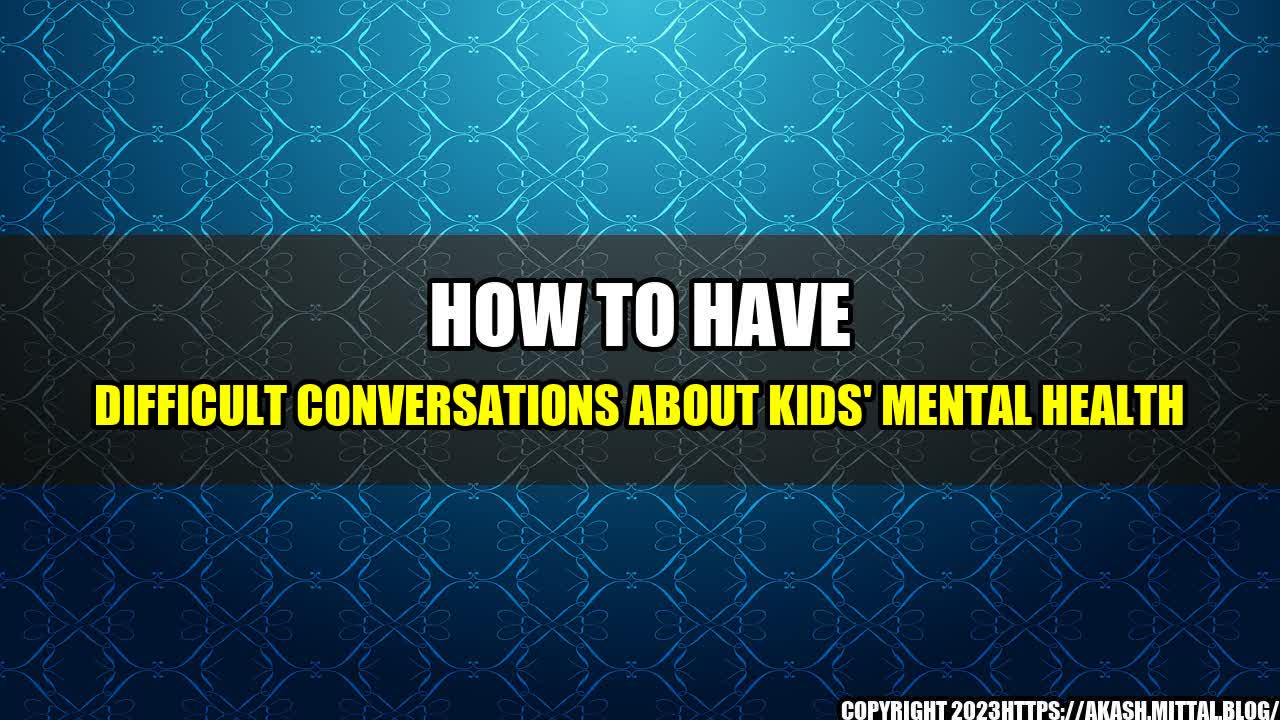As a concerned parent, it can be difficult to start a conversation with your child about their mental health. The stigma surrounding mental health often prevents individuals from seeking the help they need. However, this conversation is essential in addressing any mental health concerns your child may have. Let me share with you the story of a mother who realized the importance of having this conversation.
Jennifer was a busy working mom, but she noticed that her daughter Emily was becoming more and more withdrawn. Emily's grades were slipping, and she seemed to have lost interest in activities she once enjoyed. Jennifer tried to talk to Emily about it, but she struggled to find the right words.
One day, Jennifer finally mustered up the courage to have a difficult conversation with her daughter about her mental health. Emily opened up about how she was feeling overwhelmed, anxious, and depressed. Jennifer was able to connect her to a mental health professional, and they worked together to find a treatment plan that worked for Emily. Through open communication, Emily was able to get the help she needed to overcome her mental health struggles.

Curated by Team Akash.Mittal.Blog
Share on Twitter Share on LinkedIn